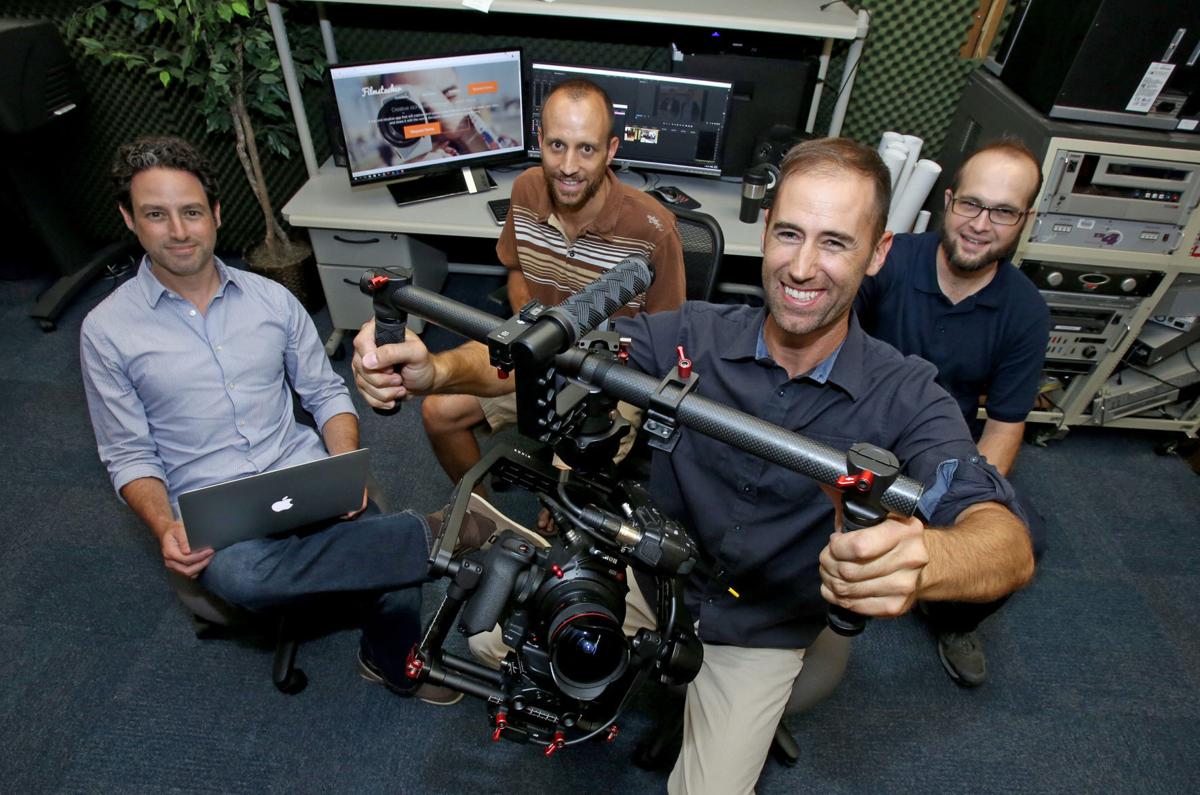The University of Arizona has licensed a new social media and video platform — based on technology developed for an award-winning documentary
— to a startup company.
Developed by the media team in the UA College of Agriculture and Life Sciences, the Filmstacker technology allows users mainly in educational settings to create, share and discuss online minidocumentaries.
The effort was led by ag college video coordinator Cody Sheehy, with web developer and framework architect J.D. Gibbs, graphic designer and web developer Craig Boesewetter, web developer and business manager Matt Rahr, and visual designer Kimberly Daly.
Tech Launch Arizona, the UA’s technology commercialization arm, handled licensing of the video technology to the new company, Filmstacker LLC.
Filmstacker allows users to search for video clips, then assemble them into their own narrative to share with others.
The technology “takes the creativity of filmmaking and makes it a social experience for the first time,” Sheehy said.
The media platform was developed as part of the UA team’s involvement in the award-winning Arizona Public Media documentary, “Beyond the Mirage,” about the future of water in the West.
It was developed by a team including Sheehy and others from the college, the UA Foundation, Arizona Public Media, as well as freelancers.
The film, designed to raise awareness and understanding about water issues across the state, won the $100,000 grand prize for the New Arizona Prize: Water Consciousness Challenge for its concept for an innovative tool to maximize distribution.
The platform provides access to a library of video clips online and allows anyone — from students to educators to journalists — to edit them together to create and share their own minidocumentaries on the “Beyond the Mirage” website.
Sheehy said the Filmstacker team will continue its work at the College of Agriculture as it pushes the company forward on several fronts.
The group is working to set up a research project on the educational benefits of its video editing and sharing platform, potentially seeking funding from the National Science Foundation to help roll it out on major educational sites such as PBS LearningMedia, he said.
The team also is working on its next documentary project, about sustainable fisheries in the Gulf of California, featuring narrative-driven content with an environmental message, Sheehy said.
Meanwhile, Sheehy said, the company will work on a public Filmstacker site where users can freely share video content, with the goal of rolling out a website within about a year, he said.
The company is still studying ways it could make money with Filmstacker under various models, such as offering the platform for private use under a fee-based subscription model, he said.





